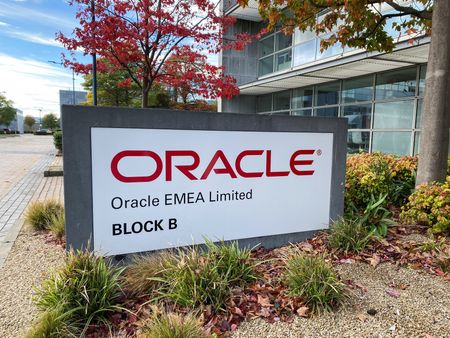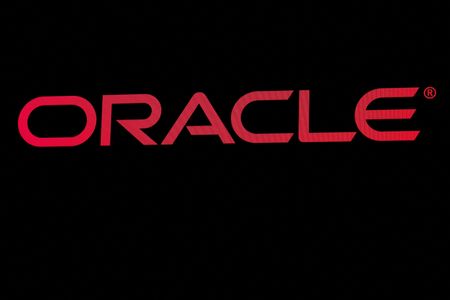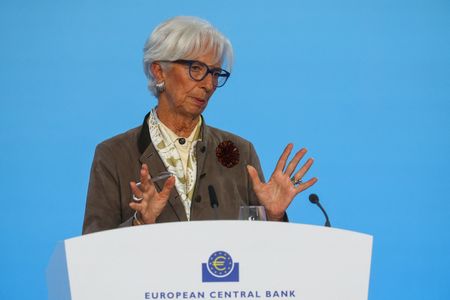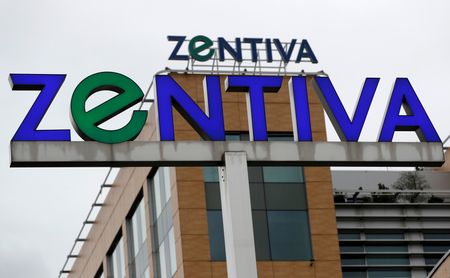By Joel Jose and Akash Sriram
(Reuters) – Oracle shares retreated on Thursday after a record AI-driven surge in the previous session that put the company closer to the trillion-dollar mark and co-founder Larry Ellison within striking distance of the world’s richest person title.
The enterprise software maker’s remarkable rise, fueled by a wave of multi-billion-dollar cloud deals, puts the spotlight on the scramble for computing power from companies that are pouring billions to become leaders in the AI race.
Oracle’s shares fell about 4% after climbing as much as 35.9% on Wednesday. The company’s market valuation rose to a record $933 billion, as of last close, but is set to fall to around $894 billion if losses hold.
Ellison’s net worth stood at around $371.7 billion, largely driven by his 41% stake in Oracle, compared with Tesla CEO Elon Musk’s $441.2 billion fortune that tops Forbes’ global wealth rankings.
“A bit of buyer exhaustion here. I think the “buy the dip” crowd is likely to re-emerge,” said Dennis Dick, chief strategist at Stock Trader Network.
“The guidance was so incredible, hard to think that this story is over.”
Oracle said on Tuesday its order backlog is on track to hit half a trillion dollars in the coming months.
The Wall Street Journal also reported on Wednesday that OpenAI has signed a $300 billion deal with Oracle for computing power, among the biggest in history.
Oracle’s stock has nearly doubled in value this year, making it among the top performers in the S&P 500 index, trouncing gains made by the so-called Magnificent Seven stocks.
The median price target of $342 represents an upside of around 9% to the company’s stock price of $314.45, according to LSEG data.
The shares were trading at a premium compared to its cloud services peers. Their 12-month forward price-to-earnings multiple was 45.3, compared with Amazon’s 31.3 and Microsoft’s 31.
(Reporting by Joel Jose and Akash Sriram in Bengaluru; Editing by Arpan Varghese and Shinjini Ganguli)












